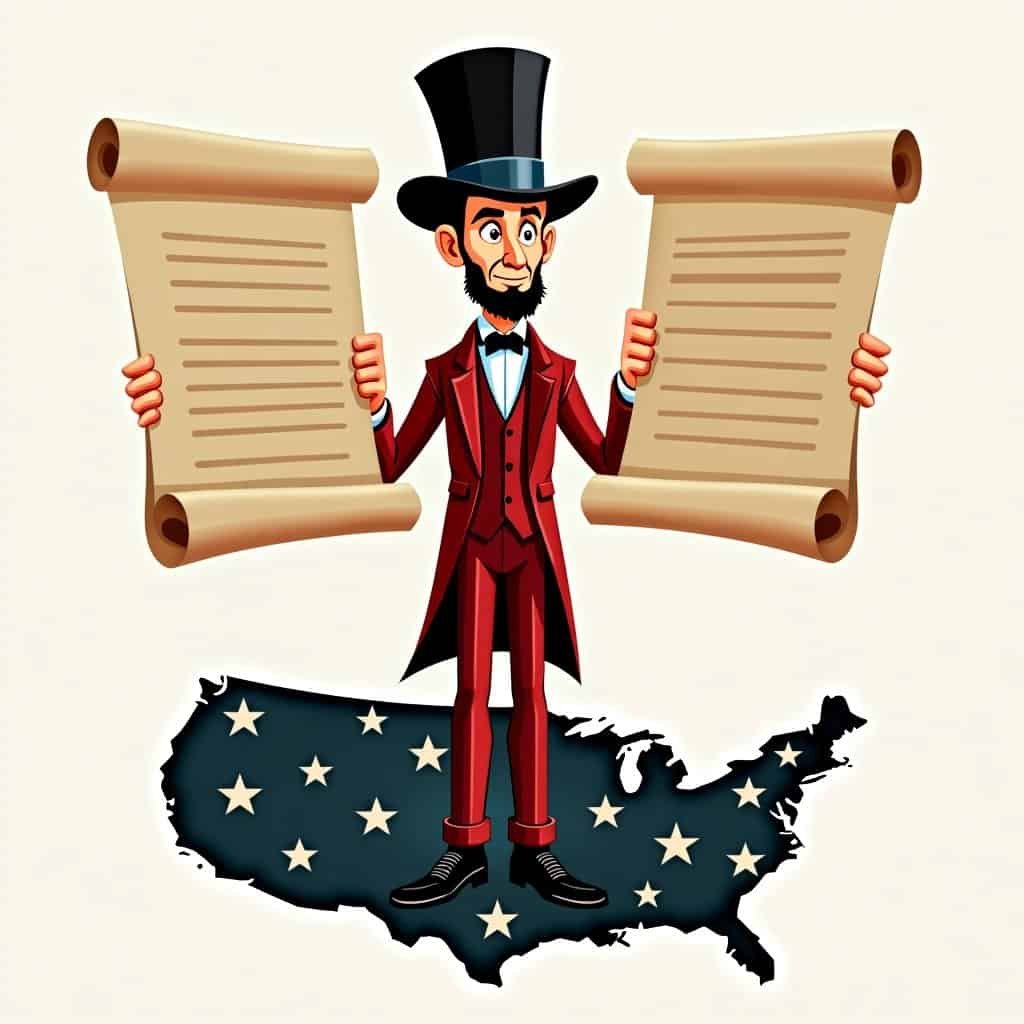Abraham Lincoln wasn’t your average Republican. Picture this: a tall fellow with a penchant for honesty and a fondness for stovepipe hats. But there’s more to Honest Abe than meets the eye. He embodied conservative values in their purest form, championing individual freedom and limited government.
Lincoln’s approach to ending slavery wasn’t just a simple policy change. It was a masterful constitutional maneuver that would make even the most stringent constitutionalist nod in approval. He understood that America, much like a well-balanced recipe, needed just the right mix of ingredients to thrive.
At the heart of conservative thinking lies this idea of equilibrium – striking the perfect balance between empowering individuals and preventing government overreach. Lincoln’s Emancipation Proclamation was a prime example of this balancing act. He wielded his executive powers judiciously, treating it as a wartime measure without overstepping his bounds.
Lincoln’s Strategic Approach
| Action | Conservative Principle |
|---|---|
| Emancipation Proclamation | Limited use of executive power |
| 13th Amendment | Constitutional process and state involvement |
| Federalism | Balance between federal and state powers |
This historic document set the stage in rebellious areas but left the nitty-gritty details to the 13th Amendment. That’s where Lincoln’s conservative approach shines – he avoided broad federal action without state input. He was like a conductor leading an orchestra where the Union’s melody blended harmoniously with local governance, creating a symphony of diverse instruments.
The 13th Amendment is often seen as the legal home run that knocked slavery out of the park across the entire United States. But here’s where Lincoln’s conservative genius truly sparkles: by pursuing a constitutional amendment, he ensured it wasn’t just the federal government forcing an idea onto the nation. Instead, it was ratified by three-fourths of the states – a testament to Lincoln’s ability to turn a moral imperative into a matter of constitutional legality and liberty.
Lincoln’s Conservative Legacy
The punchline? Lincoln’s approach balanced these monumental changes with admirable restraint, championing strong federalism without turning our beloved nation into an overgrown bureaucratic jungle that would choke the life out of state governments.
So, let’s raise a glass to Lincoln – the man who ended slavery not with a sledgehammer, but with the precision of a master craftsman. He was a conservative who believed in uplifting lives while preserving institutional integrity. May we always remember him as the conservative Republican hero who performed the intricate dance of ending slavery within the bounds of the Constitution.






